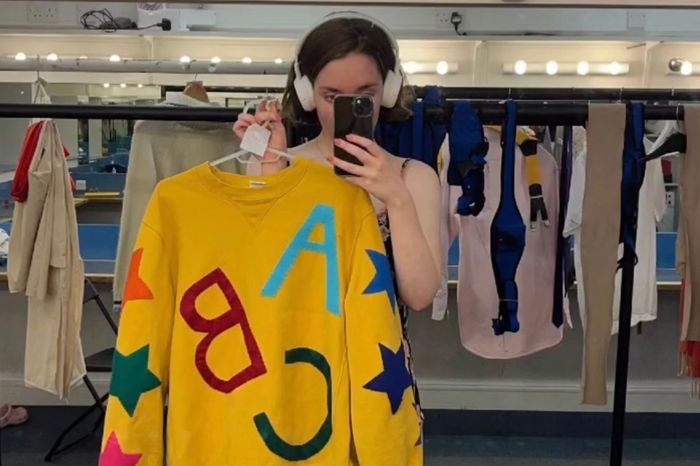Medwards and the merits of collegiate theatre-making
Jack Marley investigates how the theatrical history of Medwards can reccomend a different and overlooked way of making theatre

The Cambridge theatre scene fundamentally operates at a university-wide level. It is dominated by ADC and Corpus Playroom productions, created by students from every corner of the institution and facilitated by non-collegiate organisations like Bread Theatre and Film Company, CUMTS, and CUADC (with the exception of the Fletcher Players). Even collegiate theatre societies such as BATS, the Pembroke Players, and the Lady Margaret Players fund shows by those from outside their respective colleges and publicise in general forums both online and in the city centre, seeking to attract a broad audience to their college venues. This is to say, truly collegiate theatre making – created by those at a college, performed in that college, for audiences from that college – is a rare thing, especially when one sets aside Fresher’s plays and pantomimes. Two productions staged in Murray Edwards College this year have bucked this trend, however, thus standing out amongst another busy year of Camdram activity, despite having likely passed most people by.
“Production value is hardly important, though, when you’re creating a space for people to come together and have fun”
A deep dive on Facebook and Camdram reveals a intermittent history of theatre at Medwards, redolent of many student societies as generations come and go. A group called ‘Madhouse’ funded shows across Cambridge throughout the 2000s and ’10s, including a few May Week productions on college grounds. It fell inactive, was relaunched in 2017, and then renamed ‘the Arden Players’ in 2019 with an emphasis on supporting female and non-binary theatre-making. After one May week production of Romeo and Juliet under the new name, the pandemic seemingly killed off this venture. The next theatre to grace the college’s strangely wide corridors was performed this February, three and a half years later. It came in the form of a Cambridge-specific parody of Bridget Jones’s Diary, written and directed by the then-freshers Britt Dewing and Katherine Perry, followed up by a May Week show directed by Mia Glencrose titled Much Ado about Medwards. Britt told me how Cambridget Jones’s Diary, as the first production was called, was a totally collegiate affair: the protagonist was parodied as an ageing postgrad from the college, the cast and crew were all Medwards students, and the show was fully rehearsed and performed in its spaces to audiences representing the full college community. Roles were given to all interested and many involved, the directors included, were newcomers to Cambridge Theatre; furthermore, with no funding, the sets, props, and costume were largely improvised. Production value is hardly important, though, when you’re creating a space for people to come together and have fun: Britt said the show was “loved” by the community and a great opportunity for people to make friends across the college.
“The success of these shows at Medwards should act as a reminder, though, that this is not the only model”
The benefits of this approach seem apparent. Operating within a collegiate community is a powerful thing. Britt reported vital practical support from Events and IT staff, alongside the college’s academic staff and students embracing the production “with open arms” to create a positive atmosphere around it. It also allows people to make theatre in a fun, relaxed, and supportive environment, without the expectations of audiences and reviewers that come with higher-profile productions. This resonates particularly when contrasted against issues commonly associated with the university-wide scene, such as unmanageable time demands, biassed recruiting and auditioning, and the interpersonal tensions that often arise from such high-pressure environments. It’s obviously not a black and white case of collegiate theatre-making being a superior model to the university-wide scene; nor do these issues affect all university-wide productions and no collegiate ones.
There is, however, a hegemony of shows that transcend college communities and participate instead in the broader theatrical community, most clearly evidenced by the recent activities of many collegiate theatre societies. As the dominant model for student theatre-making, it makes sense to share resources equitably across the university and aspire to make the best theatre via rigorous pitching processes. The success of these shows at Medwards should act as a reminder, though, that this is not the only model, and there is great value in looking inwards to college communities for cast, crew, and audiences who might not otherwise participate in the sometimes-insular world of Cambridge theatre.
In light of this theatrical rebirth a new drama society has been created at Medwards. I can only hope that, rather than aspiring to put the college ‘on the map’ within the university scene, it instead continues to foster and support inclusive theatrical activity within the college’s community. Perhaps it might even set a broader trend of which more established collegiate theatre societies, the older of which invariably originated from within their college communities, could make note.
 News / CUP announces funding scheme for under-represented academics19 December 2025
News / CUP announces funding scheme for under-represented academics19 December 2025 News / SU reluctantly registers controversial women’s soc18 December 2025
News / SU reluctantly registers controversial women’s soc18 December 2025 News / Cambridge welcomes UK rejoining the Erasmus scheme20 December 2025
News / Cambridge welcomes UK rejoining the Erasmus scheme20 December 2025 Features / Should I stay or should I go? Cambridge students and alumni reflect on how their memories stay with them15 December 2025
Features / Should I stay or should I go? Cambridge students and alumni reflect on how their memories stay with them15 December 2025 Film & TV / Timothée Chalamet and the era-fication of film marketing21 December 2025
Film & TV / Timothée Chalamet and the era-fication of film marketing21 December 2025










